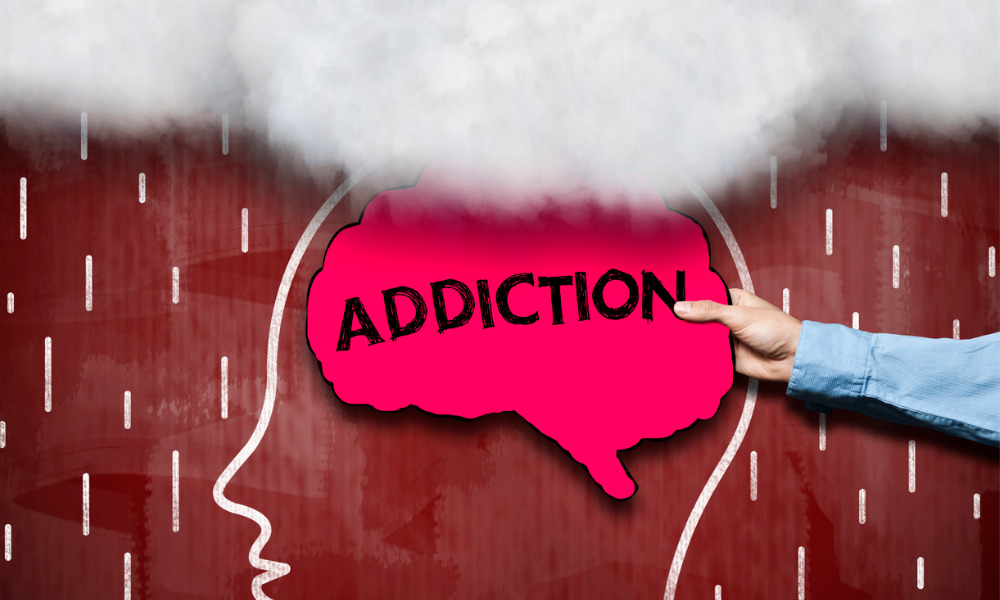Issue needs to be addressed amid pandemic, opioid crisis

Safety officers, auditors, coaches, mentors – OHS pros are nowadays called upon to wear a variety of hats. This is because our definition of workplace health and safety has expanded to a more holistic view of worker wellbeing. Workers’ needs are wide and varied.
Despite the best intentions, workplaces can create stressors such as heavy work demands, lack of time off, long work hours and even physical hazards which can exacerbate mental health and addiction issues. While mental health awareness is gaining traction in the workplace, this should go hand in hand with a better understanding of addiction.
Between the ongoing opioid crisis in North America and an increase in substance use (and abuse) linked to the pandemic, addiction is likely a key topic that employers need to be aware of and address. However, there is still a huge stigma around addiction, and workers may not feel comfortable asking for help.
“Many workers fear coming forward about their struggle with an addiction will result in them being shamed, appearing as weak or incompetent, or being demoted or fired. This can put a lot of pressure on workers with an addiction to hide their addiction for fear of losing their job or tarnishing their reputation,” says Kinga Burjan, Clinic Director, Virtual Integrated Programming, Trafalgar Addiction Treatment Centres.
Indeed, Burjan explains that there are various life circumstances that can lead to a person using a substance or engaging in addictive behaviour to cope with or numb any underlying pain and/or unaddressed mental health issues. To believe that it is easy to stop an addictive behaviour by sheer willpower alone demonstrates a lack of understanding of the issue at hand.
And addiction can impact a worker’s mental and physical wellbeing. Typically, an addiction can and will exacerbate a person’s mental health issues by increasing things such as isolation, anxiety, irritability or depression. In addition, addiction can exaggerate negative thinking, mood swings such as becoming quick to anger or be more irritable.
According to 2012 statistics from the Centre for Addiction and Mental Health (CAMH), according to the general population, people with an addiction are up to three times more likely to have a mental health issue.
And there are effects on physical health too. “Addiction will interfere with regular sleep patterns and affect the person physically,” says Burjan. Some physical indicators can include sudden weight gain or loss, lack of care for personal appearance, blood-shot eyes, flushed skin, etc.
However, she says that it is important not to assume that a worker demonstrating these signs necessarily has an addiction. “Some of these signs may be caused by temporary home stress, lack of sleep, or a mental of physical illness; however, you don’t want to avoid having a conversation with the person in case they are struggling with an addiction.”
So what can safety professionals do to help workers struggling with addiction?
“First and foremost, remember that when a worker is struggling with an addiction or mental health issue, treat them as a human being, with respect and dignity.
We all go through ups and downs in life, and the less judgmental you are towards the person, the safer they will feel opening up and accepting support. It’s important for the person to feel that they are still of value to the organization, despite them struggling with an addiction,” says Burjan.
Burjan also points out that providing education about mental health and addiction to an organization’s workers can decrease the stigma and normalize mental health issues and addictions.
“Workers should be educated on the organization’s substance use policies. Workers should clearly know where they can go within their organization to discuss any obstacles that they are encountering during their work due to mental health or addiction issues, or issues at work that may be contributing negatively to their mental health,” says Burjan.
In addition, workers should also know that should they choose to voice their concerns in the workplace, that these concerns will be kept private, and the worker will not be reprimanded for coming forward about their mental health, addiction, or work concerns.
According to a Workplace Mental Health Promotion report in 2022, the office of the Ontario’s Auditor General found there to be a whopping 565 per cent return on investment for making addiction treatment easily accessible for employees. What does this mean? That it is important for organizations to offer appropriate treatment resources (recovery groups, psychotherapy, rehab, etc.) for employees so that workers can “get the help they need and return to work in a healthier and better functioning condition, which long-term positively impacts the organization,” says Burjan.





